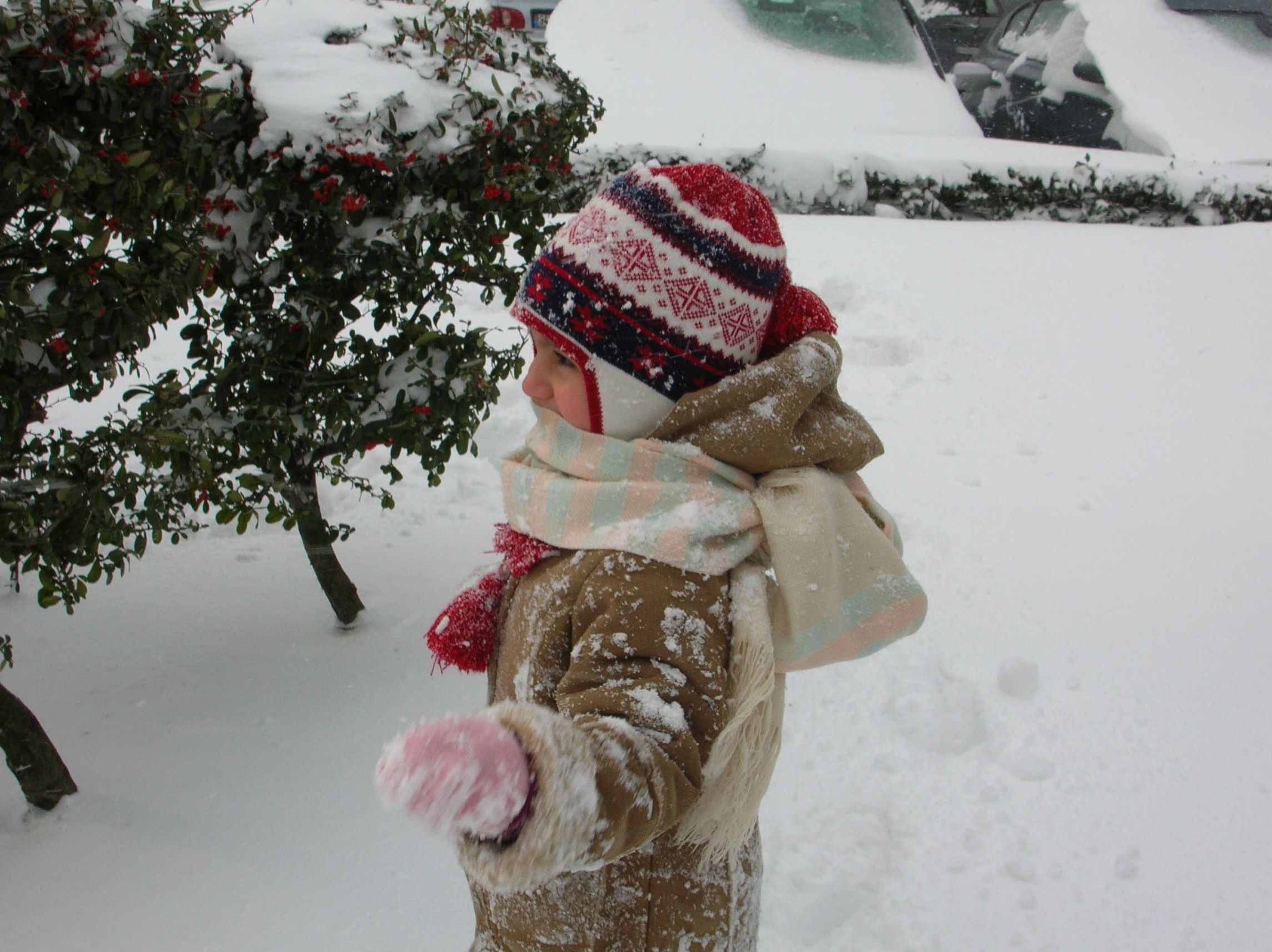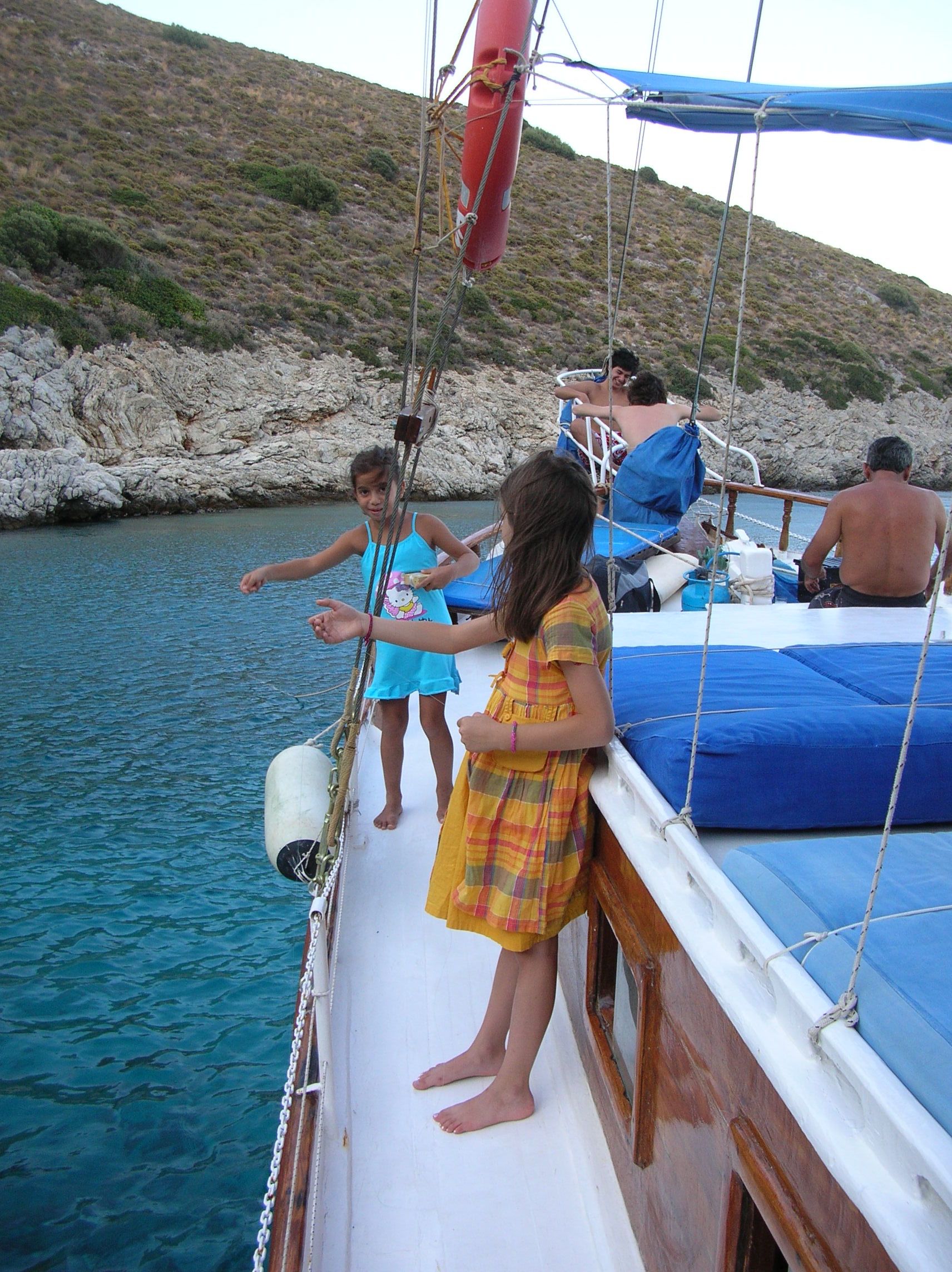
“I feel I can be myself in London”
Ayşe Zeynep Kamış, Undergraduate, Department of Bioengineering
Challenging tradition
I had a pretty typical upbringing and a regular childhood in Turkey. I’m from a more privileged community which was fairly liberal, and quite far from the more religious communities in Turkey. The country also has a sharp contrast between religious, conservative people and liberal people.
My parents are quite conservative. Within my family, there was often a preoccupation with the clothes I wore and the makeup I was putting on, particularly from my dad. I feel like he learnt this from his parents. I started talking to my dad about these issues and I think he’s changed a lot. Now he's always there for me.
I grew up in the city of Istanbul where I went to an American high school. I loved biology and physics. When it came to choosing a subject to study at university, I wanted to combine the two and so I opted to study bioengineering at Imperial.
Navigating life with illness
Growing up, I had an eating disorder and I struggled with bulimia for five years. During my last year of high school, I was struggling to swallow food. Initially, this was thought to be because of my eating disorder. But after having an endoscopy and several scans, I was diagnosed with Crohn’s disease. My condition does often affect my daily life, but I'm on immunosuppressive medication which helps. I wouldn't say I'm fully in remission, but I'm doing much better.
As well as Crohn’s, I also have ankylosing spondylitis, which is a long-term condition where joints become inflamed. I was diagnosed with the condition after I noticed my hip joint would keep flaring up following a pulled muscle. I have a slight limp on days when I’m having a flare-up, but thanks to my medication, it's mostly gone.
The process of getting diagnosed with these conditions was quite hard for me. I had to spend a lot of time getting MRI scans which I found scary. These experiences helped me realise that bioengineering was the right degree for me, as one day, I would love to improve the user experience of MRIs.
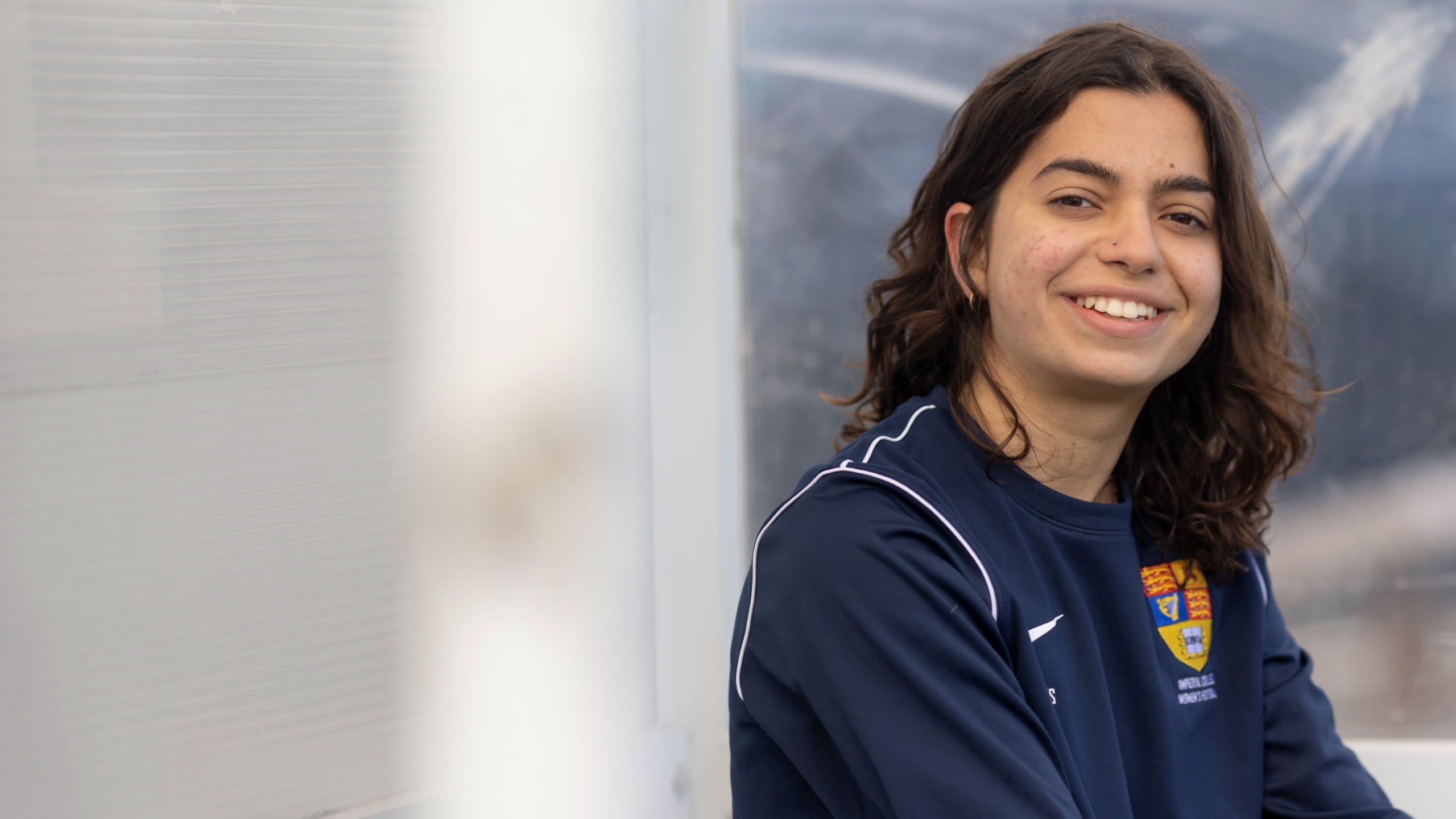
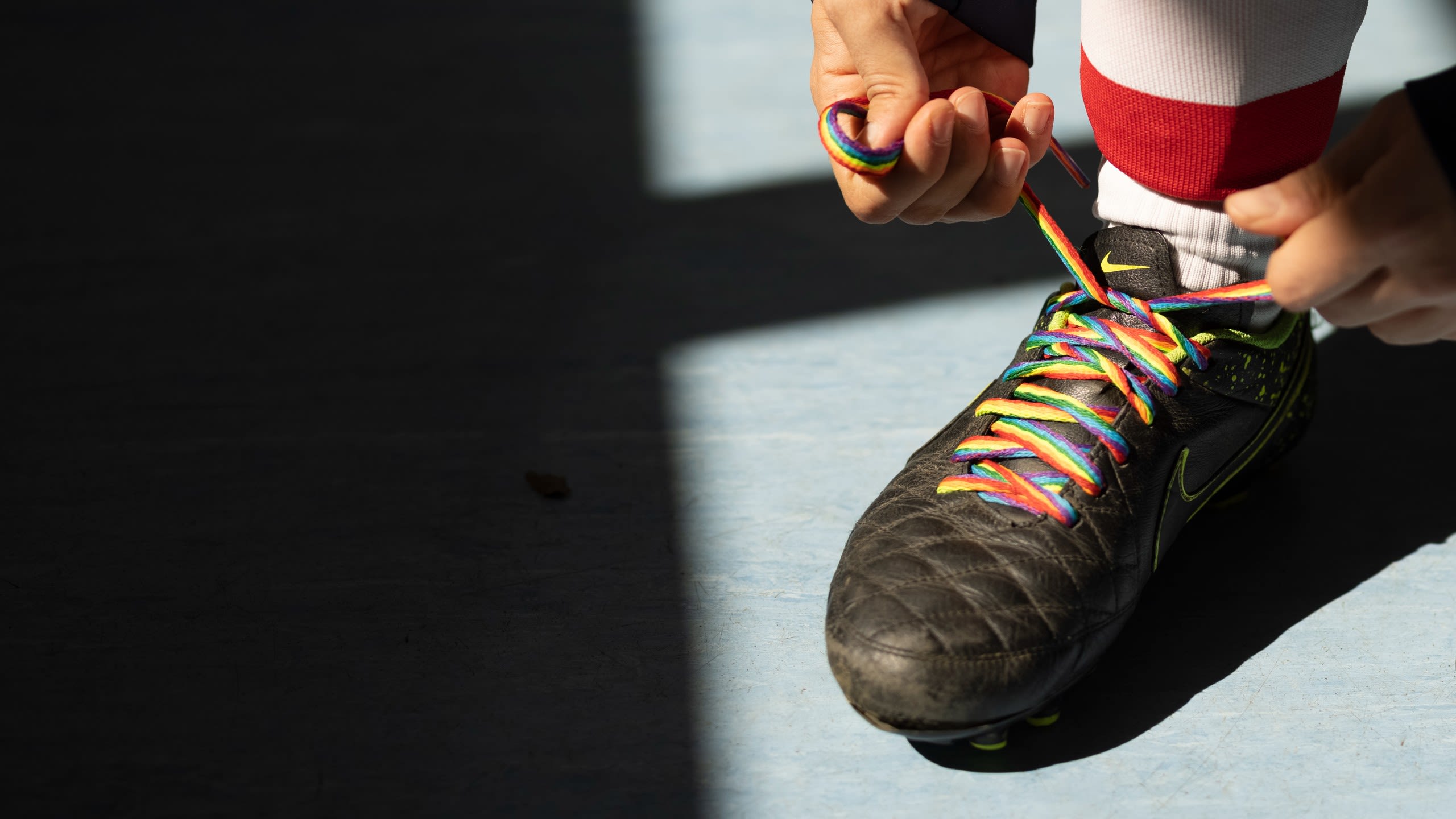
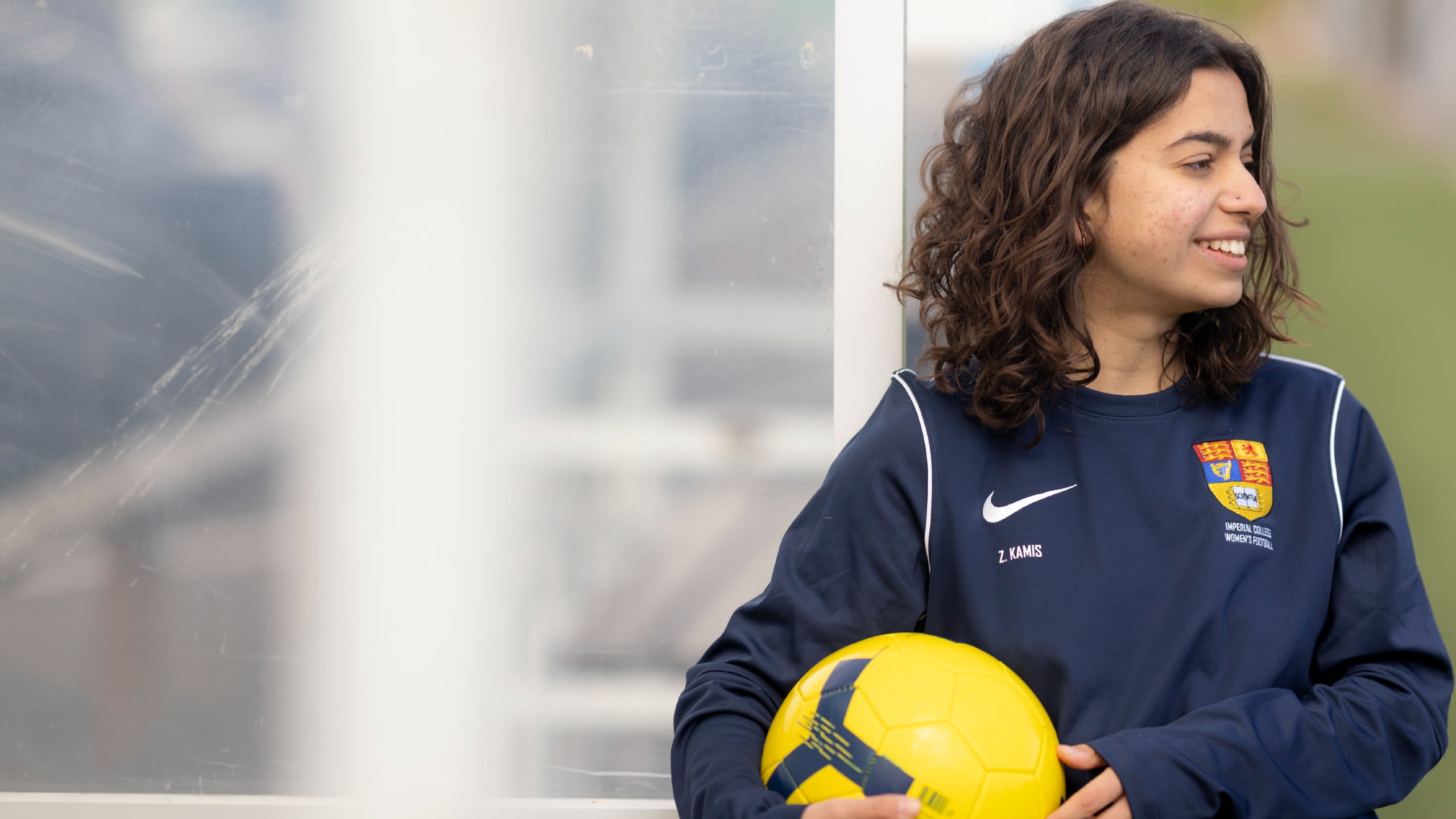
Healing through food and cooking
Every single time I’m asked the question on a form about my ethnicity, I think: "Okay, here we go again!" Turkish people may identify in different ways because they come from different backgrounds. There are people from a predominantly European background, while in the eastern regions of Turkey there are many Armenian or Kurdish neighbourhoods. I feel like the only umbrella term that would do it justice is Middle Eastern.
Everyone in Turkey treats you like a friend. Here in the UK, I can easily make friends with Turkish people. I know all the owners of the local Turkish kebab shops.
Ayşe playing in the snow as a child
Ayşe playing in the snow as a child
I’m proud of my culture. We place a big importance on how you treat your guests and that has really stuck with me. I love having people over and treating them well. Cooking for friends is a way for me to show my love and affection for them. I think that behaviour comes from my parents who always said: "You always have to treat your guests right. You always put them first."
The other big part of my culture that I enjoy is the food. It still fascinates me to this day how diverse the cuisine is in Turkey from its different regions. I recently turned vegan and although I cannot eat most of the traditional food now, I still take pride in it.
Cooking is a passion for me because I tried healing myself through food, as part of recovering from an eating disorder. Last year during COVID, I had a lot more time to be cooking complex dishes. Even if it was just a regular day, I would be making crepes with spinach, mushrooms and bechamel sauce (back when I wasn’t a vegan). Some of my favourite Turkish dishes are zeytinyağlı pırasa which consists of leeks, carrots, rice, orange juice, lemon juice and olive oil. I also really enjoy making ispanak yemeği ve pilav which is a spinach dish with rice.
I really enjoy playing football, and our football club is quite queer, which I absolutely love. I play for the Imperial women’s 2nd team as a centre back. It’s a safe space and no one cares if you’re bi, straight or gay
I came out after I moved to London to study at Imperial. I’ve been empowered to be proud of my sexual identity because of Imperial
Embracing yourself
Ayşe enjoying a family holiday as a child
Ayşe enjoying a family holiday as a child
As well as my Turkish culture, being bisexual is also an important part of my identity. I came out after I moved to London to study at Imperial. I’ve been empowered to be proud of my sexual identity because of Imperial. In Turkey, it was always assumed that I was heterosexual. It was never an option to be anything else. You are an outlier if you're openly gay in Turkey unless you are in a safe community.
When I discovered I was bisexual, I used to blame myself. I would think: "Maybe you're trying to make yourself more interesting?" But it's just something that you are. Coming to London, I saw how sensitive people are and how they embrace different identities and celebrate them. So I thought, if I’m living here, I will embrace myself for who I am.
My brother was the first person I came out to. We were on the beach and I told him: "I might be bisexual." And his response was, "Well, good for you!"
I feel I can be myself in London. I really enjoy playing football, and our football club is quite queer, which I absolutely love. I play for the Imperial women’s 2nd team as a centre back. It’s a safe space and no one cares if you’re bi, straight or gay. They’re such a nice community. We all wear rainbow laces on our football boots.

This interview was edited by Nikita Rathod, and photographed by Jason Alden. The video interview was filmed and edited by Tom Walker and Martin Sayers.
